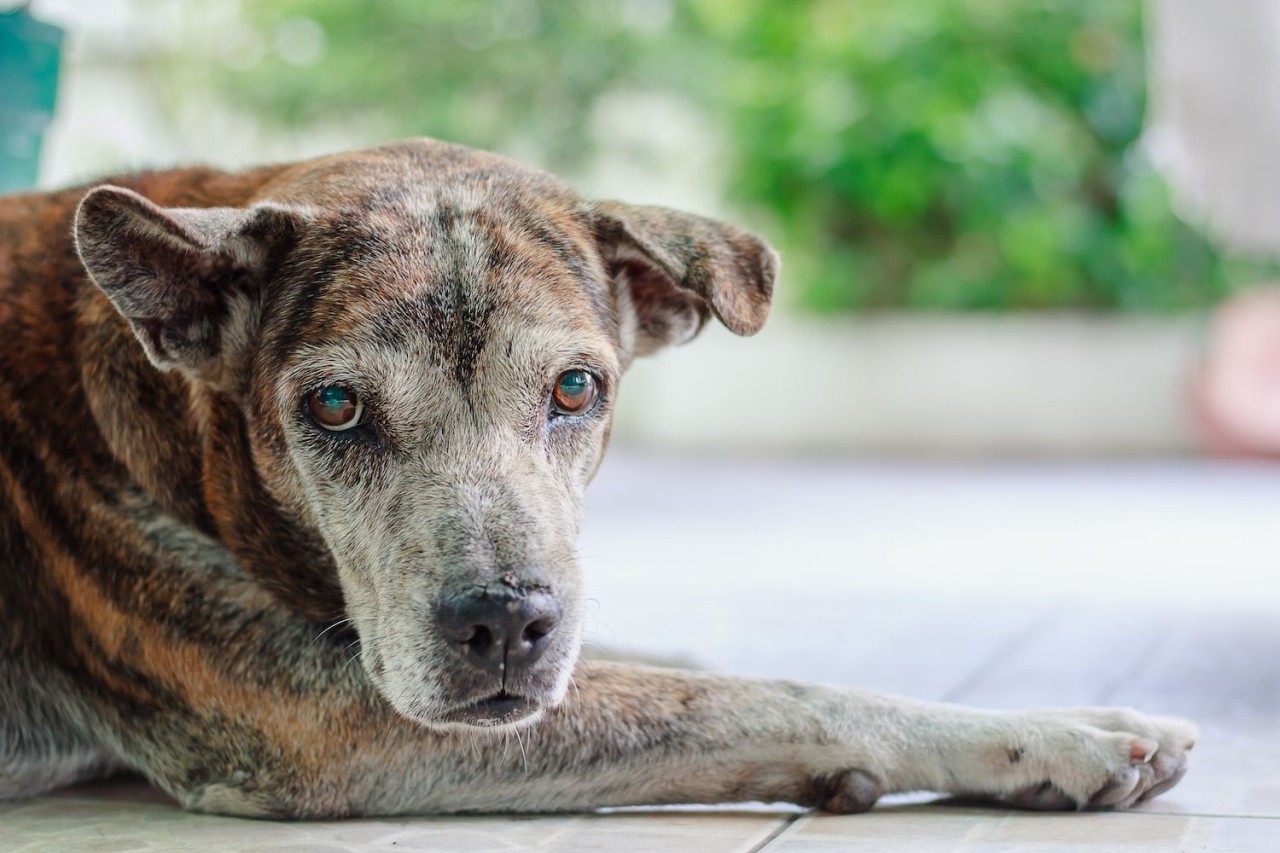Watching your beloved senior pet have a seizure can be extremely unsettling, particularly during their first seizure. Their uncontrolled movements and odd behaviors can be downright scary. Unfortunately, seizures are related to many medical conditions that commonly affect senior pets, including:
- Epilepsy
- Brain tumors
- Liver disease
- Kidney failure
- Diabetes mellitus
- Insulinoma
- Stroke
- Toxicity
Seeing your pet in the throes of a seizure can leave you paralyzed with fear or feeling helpless, but you can take several steps to help your pet—and yourself—through this stressful event.
1. Recognizing that your senior pet is having a seizure
Other odd behaviors, such as your pet twitching in their sleep, can easily be confused with a seizure. Ensure you can recognize the signs, so you will be able to act quickly should your pet experience an actual seizure.
A seizure event can be broken down into three stages:
Aura — Prior to a seizure, your pet may sense that something is off and exhibit behavior changes such as anxiety, hiding, or attention-seeking. Many owners of pets with a seizure disorder can pick up on an impending seizure from their pet's odd behavior.
Ictal stage — The actual seizure, or ictal stage, may include:
- Unconsciousness
- Paddling
- Convulsions
- Chomping the teeth
- Vocalization
- Salivation
- Urination
- Defecation
Postictal stage — Immediately following a seizure, your pet may be confused, disoriented, and anxious. Pets often stumble, pace aimlessly, vocalize, and may be temporarily blind. The postictal stage typically lasts less than an hour, but full recovery after a seizure can take up to 24 hours.
2. Ensure your senior pet will not harm themselves
Your seizuring senior pet will be unaware of their surroundings and unable to control its actions, so you will need to ensure they do not fall from the couch or tumble down the stairs while unconscious. If your pet is on an elevated surface, gently lower them to the floor. Most pets do not scoot across the floor while seizuring, so stairs are not a concern unless your pet drops to the floor near a staircase. Then, you should make a barricade with pillows or couch cushions to ensure your pet's safety
3. Give your seizuring senior pet space
Although your first instinct may be to reassure your senior pet, you can minimize the seizure's duration and severity by stepping back and giving them space. Your unconscious pet will not be aware of your presence, and any stimulation, including touch and sound, can worsen a seizure. To reduce stimulation, keep noise, touch, and light to a minimum during your pet's seizure by avoiding contact and turning down the lights, television, or music.
4. Keep yourself safe
An unconscious pet cannot control its actions, and many owners are accidentally bitten when they place their hands close to their seizuring pet's mouth. Your pet will not swallow their tongue during a seizure—this is an old wive's tale—and you do not need to clear their throat. Keep your hands out of your pet's mouth to avoid your emergency room visit and your pet's.
5. Monitor the seizure's length
Occasionally, however, a seizure can last much longer and become dangerous. Any seizure lasting longer than five minutes, or multiple seizures in a 24-hour period, warrants immediate veterinary attention. If your pet's seizure hits the five-minute mark, gently carry them to the car and have someone drive you to the nearest veterinary hospital.
6. Calm your senior pet
7. Seek veterinary care for your senior pet
A first seizure always requires immediate veterinary care to determine the cause. Your family veterinarian or an emergency veterinarian will perform a thorough exam, including a focused neurologic exam, and may recommend diagnostics, such as blood work or an MRI, to identify the cause of your pet's seizure.
If your pet has a medical condition that causes seizures, or other issues that may affect their quality of life, we can help you navigate their final weeks and months. Contact us at (802)871-2329 if you feel you need help with your senior pet. We offer tele-advice to pet owners for dogs and cats, as well as in-home hospice care and in-home euthanasia in the Burlington, VT area and surrounding towns.


